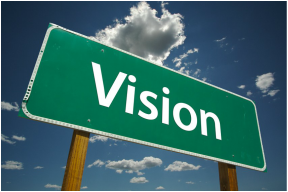
Taking a coaching approach to managing and developing your team is a journey. As with any journey, we need to figure out where we intend going and how we think we might get there. You will notice that I have used the language of “intentions” rather than the language of “goals”. The reason for this is that the beginning of the coaching journey is about exploring possibility and not about creating certainty. Furthermore, developmental activities such as succession planning and career planning are also about opening up possibilities – for the organisation and for the individual – rather than about creating certainty and single-minded commitments.
It may be useful to think about the beginning of the coaching journey as a series of conversations. The first will be a conversation intended to get to know and understand your team members’ values and motivators. The second conversation will be around understanding their hopes and dreams for their best life. The third conversation aims at coming up with a development plan with each team member. Let’s look at each conversation individually.
Conversation 1: Values and Motivators
I begin all my professional coaching programmes with an intake interview that has clients telling me their life story. I begin the process by asking them to tell me about their life from the earliest time they can remember (usually around 4 or 5 years old). I am listening for the following kinds of information:
- Key events, achievements, disappointments and people from whom they have learned important lessons. I will often stop them to ask “what did you learn from that” or “what did you learn from her”? This may tell you something about their fears (things they have learned to avoid or mistrust) and hopes (things they have learned to move towards because they are rewarding);
- Key decisions they have taken and their reasons for taking these decisions. Here I may say “Please tell me more about that decision. What made you make that choice?” This will often reveal values – and you can note these quite tentatively as something you might check later.
If it makes you more comfortable to have a set of questions than to have the conversation meander, you can create a short agenda for yourself. This is a good habit to have early in your coaching, because it calms your own anxiety about “doing it right” or remembering everything. If you do this, hold your agenda lightly and be prepared to take little detours.
You might end this first conversation with a summary along the lines of:
- This is what I’ve heard …;
- It seems to me that the following is important to you …;
- It sounds as if you enjoy … and dislike …;
- What resonates with you? Where am I off the mark?
- Is there anything else you’d like me to know?
Conversation 2: Hopes and Dreams
The purpose of this second conversation is to get a sense of what they hope to experience at the peak of their career, and what living their best life might look like. This is a far more useful conversation than the usual “tell me about your 5 year plan”, which generally elicits the answers that they think you want to hear.
There is an important caveat here. As managers and leaders, we are working with people who are free agents. We do not own them and we should not expect that they want to be with us forever. They are whole people who are on their own journey, part of which they are sharing with us. We should expect that one day they will move on and make choices that advance their own hopes and dreams. We need to be ok with this. While they are journeying with us, we want to create an environment where they can learn, grow and make a valuable contribution.
Ask questions like:
- What do you hope the peak of your career will look like?
- Tell me about 3 to 5 dreams you have for your life.
You will then want to discuss the critical skills that your team members need to develop in order to get closer to their dreams. What skills do multiple dreams have in common? Team members can go away and do this privately and bring it with them to the third conversation.
Conversation 3: The Development Plan
The purpose of this third discussion is to reach agreement on the following:
- What are the skills that the team member needs to develop in order to move closer to the realisation of one or more of their dreams?
- What work opportunities or projects would help them to develop these skills? How could this person’s role or responsibilities be adapted in order to support them in learning these new skills?
- How else could they learn these skills? A mentor? A course? Some reading? A personal project outside of work?
- How will you coach and support them in the acquisition of these new skills? How often? When?




 RSS Feed
RSS Feed


